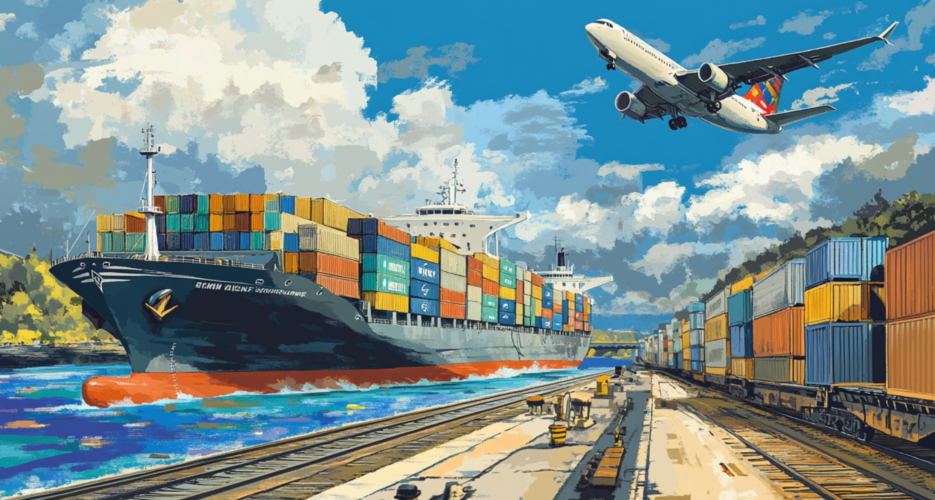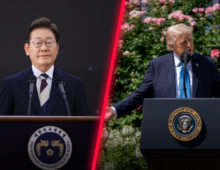|
Analysis Loopholes help South Korean firms continue exports to Russia despite sanctionsSending goods via Chinese subsidiaries risks straining ties with US and NATO and exposes companies to investigation John LeeOctober 14, 2024  Different ways of transporting cargo | Image: Korea South Korean companies continue to export goods to Russia via subsidiaries in China, bypassing export restrictions imposed after Moscow’s invasion of Ukraine, according to a report by the Royal United Services Institute (RUSI). While these companies benefit economically, the potential geopolitical risks for South Korea of not complying with Western-led sanctions are significant. In particular, ROK companies’ exploitation of legal loopholes to export goods could expose them to investigation and could strain Seoul’s relations with key partners such as the U.S. and NATO, particularly as tensions over Russia’s growing military ties with North Korea escalate. EXPORT RESTRICTIONS South Korea aligned itself with Western powers by imposing export restrictions on Moscow following Russia’s invasion of Ukraine in Feb. 2022. By September, the trade ministry had expanded these restrictions, adding 243 additional items to the list of goods banned from being exported to Russia and Belarus, bringing the total number of restricted items to 1,402. These items include advanced industrial machinery like metal-cutting tools, optical instrument parts, sensors and machine tool components. The inclusion of such items highlights the ROK’s focus on preventing the export of dual-use products that could be used for military purposes by Russia. Despite the South Korean government’s firm stance, some local companies appear to have found ways to continue exporting goods to Russia by using their foreign subsidiaries, particularly in China. South Korean trade with Russia through intermediaries complicates Seoul’s ability to ensure full compliance with its own sanctions, especially given the limitations in tracking goods once they leave third-party countries. This legal gray area raises questions about the integrity of South Korea’s export control measures and its commitment to supporting the Western sanctions regime.  A gavel and scales | Image: Canva LEGAL LOOPHOLES The RUSI report exposes how companies like DN Solutions, which manufactures advanced machine tools and industrial equipment, have utilized their subsidiaries in China to continue exporting to Russia without directly violating South Korean laws. DN Solutions reportedly exported about $11.4 million worth of goods via its Chinese subsidiary from 2023 to the first quarter of 2024. China has opposed imposing sanctions on Russia, making it a key intermediary for companies looking to maintain trade relations with Russia. By using foreign-based entities, South Korean companies can sidestep the export restrictions, as the trade technically occurs under the jurisdiction of the subsidiary’s host country. This exploitation of legal loopholes allows businesses to continue profiting from trade with Russia, even as the South Korean government attempts to enforce restrictions. However, the U.S. government issued a compliance note in March 2023, which highlighted the use of intermediaries and transshipment points, such as China, to evade sanctions on Russia. The note called for stricter enforcement of sanctions and increased due diligence to prevent the rerouting of goods through countries that do not enforce export restrictions as stringently as the U.S. and its allies. While this practice is not technically illegal under ROK law, it exposes South Korean firms to the risk of regulatory scrutiny or criminal investigations from the U.S. if they are found to be violating U.S. sanctions. The compliance note emphasizes that companies failing to comply with these measures risk being the “targets of regulatory action, administrative enforcement action or criminal investigation.” Additionally, this loophole may tarnish South Korea’s international reputation as its Western partners may perceive Seoul’s inability to fully enforce its sanctions as a weak link in the global sanctions regime, raising concerns about its commitment to collective security efforts. RISKS TO RELATIONS The U.S. and NATO allies have been instrumental in leading the global sanctions campaign against Russia, and South Korea’s participation has been a critical component of this collective stance. However, the ongoing indirect trade between South Korean companies and Russia threatens to create friction between Seoul and its Western partners. Washington, in particular, may view these legal loopholes as undermining the broader sanctions effort, potentially leading to tensions in the U.S.-South Korea alliance. The U.S. compliance note explicitly highlights that multinational companies engaging in such practices risk being the targets of regulatory or criminal investigations. This raises the possibility that the U.S. could take direct action against South Korean businesses if they are found to be circumventing export controls. In a worst-case scenario, South Korea could face pressure from the U.S. to impose even stricter export controls or face potential trade repercussions. The U.S. has significant influence over South Korea’s security environment, particularly regarding North Korean threats, and maintaining strong relations with Washington is vital for Seoul’s defense posture. The potential for diplomatic fallout over South Korea’s perceived non-compliance could also affect future collaboration on military technology and intelligence sharing, particularly if the issue becomes a focal point in U.S. domestic politics. NATO member states will also likely closely watch South Korea’s adherence to sanctions, especially as the alliance expands its defense cooperation with the Indo-Pacific region.  South Korean President Yoon Suk-yeol meets with then-NATO Secretary General Jens Stoltenberg during a NATO summit, July 11, 2024 | Image: ROK Presidential Office ECONOMIC BENEFITS AMID TENSIONS Despite the geopolitical risks, South Korean companies benefit from continuing trade with Russia through subsidiaries. Russia remains a significant market for South Korea’s manufacturing and petrochemical sectors. For instance, RUSI claims that DL Chemical shipped over $1.6 million of polyisobutylene — a synthetic rubber and polymer that can be used as a binder in solid rocket propellants — through its Chinese subsidiary to Russia between 2022 and 2023. These economic opportunities provide short-term benefits, especially for businesses facing losses in other markets. However, these gains come with significant risks, particularly as Russia strengthens its military cooperation with North Korea. Reports of North Korea supplying Russia with artillery shells and ballistic missiles raise concerns that any goods exported to Russia could be repurposed for military use. Further, South Korea’s national security interests are directly threatened by this Russia-North Korea partnership. This balancing act between economic interests and national security concerns will continue to challenge South Korea’s foreign policy. The more reliant ROK companies become on trade with Russia, the more difficult it will be for Seoul to fully earn its Western partners’ trust. UNCERTAIN OUTLOOK Looking forward, the South Korean government will likely face increasing pressure from Western allies to close the legal loopholes that allow indirect trade with Russia. Seoul may consider additional enforcement measures, such as requiring parent companies to take greater responsibility for the actions of their foreign subsidiaries. In the longer term, South Korea will also likely come under pressure to diversify its energy reliance on Russia. Although it has significantly reduced its imports of Russian oil, South Korea remains dependent on Russian gas and coal to meet its energy needs. The burgeoning Russia-North Korea military partnership also adds further pressure on Seoul. As North Korea becomes more emboldened through its ties with Moscow, South Korea may prioritize its defense needs and consider strengthening its missile defense and intelligence-sharing capabilities with the U.S. and Japan. As South Korea continues to align itself with Western powers, it will likely address these loopholes to maintain trust with its allies and ensure that its national security interests are not compromised. Edited by Alannah Hill South Korean companies continue to export goods to Russia via subsidiaries in China, bypassing export restrictions imposed after Moscow’s invasion of Ukraine, according to a report by the Royal United Services Institute (RUSI). While these companies benefit economically, the potential geopolitical risks for South Korea of not complying with Western-led sanctions are significant. Get your
|
|
Analysis Loopholes help South Korean firms continue exports to Russia despite sanctionsSending goods via Chinese subsidiaries risks straining ties with US and NATO and exposes companies to investigation  South Korean companies continue to export goods to Russia via subsidiaries in China, bypassing export restrictions imposed after Moscow’s invasion of Ukraine, according to a report by the Royal United Services Institute (RUSI). While these companies benefit economically, the potential geopolitical risks for South Korea of not complying with Western-led sanctions are significant. © Korea Risk Group. All rights reserved. |











